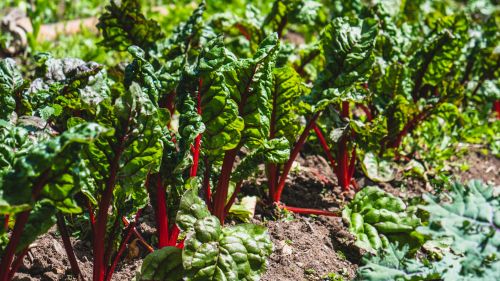Sustainable Food Systems: A View from the Midwest

Since the dawn of agriculture spurred the establishment of human civilizations, humans have adapted and revolutionized their food systems to overcome obstacles.
Challenges with our food systems
Since the dawn of agriculture spurred the establishment of human civilizations, humans have adapted and revolutionized their food systems to overcome obstacles. From specialized tools to irrigation systems to crop genetics, the nature of agriculture and our food systems has changed dramatically in the last 10,000 years.
Today, there are nearly 8 billion people on the planet, meaning nearly 8 billion people in need of daily nutritional sustenance. This presents new challenges that threaten our fragile global food system.
- Global populations are projected to rise to nearly 10 billion by 2050, and life expectancies are increasing. More people will require more food for longer amounts of time, and with rapid urbanization, food will be required to reach denser, more urban populations.
- Climate change has adversely affected farmlands, whether through the unprecedented number of climate disasters the world has endured in the last few decades or simply the changing nature of the environment. Council reporting shows that climate change could reduce food production growth by 2 percent each decade for the rest of the century.
- Rapid globalization coupled with improving livelihoods has skyrocketed demand for fresher, healthier foods and dietary diversity.
- As mentioned in an earlier post, “The Global Commitment to Sustainable Development,” the world is actually moving backwards in terms of feeding its inhabitants. The number of undernourished people on the planet jumped from 777 million in 2015 to 815 million in 2018.
- Despite these millions going hungry, 286 billion pounds of food are wasted every year.
Is our global food system adapting fast enough to overcome today’s modern challenges? How can we build and strengthen the food system to meet growing demands, while also prioritizing sustainability?
We need to think creatively, improve efficiency, and promote the global commitment to the Sustainable Development Goals on farms, in the supply chain, in our grocery stores and markets, and at our own kitchen tables. It will require massive investment, ingenuity, and all-hands-on-deck multi-sectoral work, and the Midwestern United States is already leading the way.
The Midwest boasts over 127 million acres of agricultural land. Because of this, it makes sense that the region would be teeming with food-centric corporations, innovative startups, and passionate people who are committed to improving transparency and the ways in which we feed the world. With more money and brand loyalty, corporations arguably have the most power to lead transformations in this space:
- Agricultural processing company and ingredient distributor Archer Daniels Midland, headquartered in Chicago’s Loop, has reduced their waste-to-landfill rate to 15.7 percent, meaning that nearly 85 percent of waste generated in ADM facilities is reused as fuel or fertilizer. Some 24 ADM facilities have even reached zero waste status.
- McDonald’s Corporation, a new resident in Chicago’s West Loop neighborhood, is one of the largest buyers of beef in the world. Global deforestation is accelerated in order to make room for grazing cattle, so McDonald’s has committed to eliminating deforestation in their beef supply chain by 2020, and has partnered with non-profits all over the world to do so.
- The North American headquarters of global beer brewer and distributor, Anheuser-Busch, is centrally located is St. Louis, Missouri. Since 1988, they have donated over 80 million cans of clean drinking water to communities in crisis. Stewardship aside, they’ve revolutionized their operations to be more sustainable by investing in renewable energy-powered delivery trucks and brewing their beers using fully renewable energy sources.
- Mondelez International, the company behind sugary snack favorites like Cadbury Chocolate, Chips Ahoy, and Tate’s Bake Shop, has committed to the sustainable sourcing of all cocoa and palm oil used in their products.
- US Foods Holdings, the food supplier you have surely seen in restaurants or hospitals, has not only invested in women- and minority-owned food businesses but has worked with farmers to ensure that all the eggs they procure will be from cage-free, and from American Humane Certified environments by 2026.
- Kraft Heinz, makers of instant macaroni and cheese, ketchup, and other American staples, has committed to reducing waste, not just in its supply chains but in its products’ packaging too.
- Kikkoman Foods Inc. was the first Japanese company to sign the United Nations Global Compact back in 2001. With a production plant in Walworth, Wisconsin responsible for the brewing of 29 million gallons of soy sauce every year, the company has long been a contributor to the Midwest’s sustainability efforts.
While consumers are surely holding these corporations accountable to be both sustainable and transparent in their efforts, Midwestern companies are clearly committed to transforming the ways in which we understand, interact with, and consume our food. How else are Midwestern companies transforming their policies and operations to contribute to a stronger, more sustainable food system that overcomes our most pressing global challenges?


